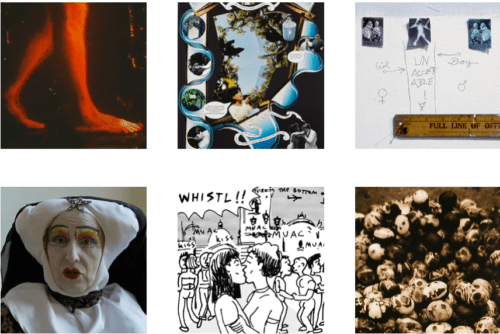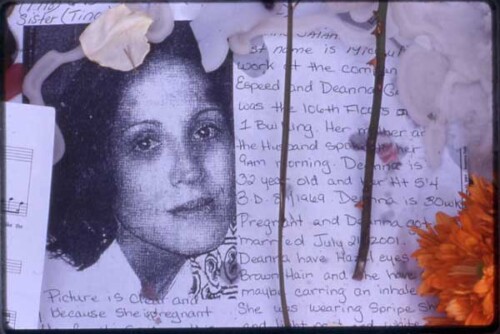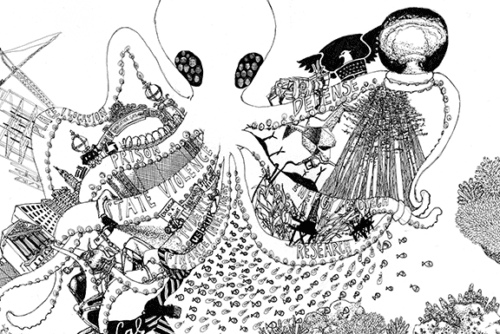Conclusion: The Death of a Promise or the Need to Mourn the Loss of a Liberal Vision
Since neither her view of history, nor her construction of herself through it are linear, the past, home, and the father leave traces that are constantly reabsorbed into a shifting vision. She lives, after all, on the edge, indeed, that early experience of separation and difference from the father is remembered not only in terms of the possibility of change, but also in relation to the pain of loss, the loneliness of change, the undiminished desire for home, for the familiarity, for some coexistence of familiarity and difference. 1
In order for the mourning process to take place at all, those who have suffered injuries at the hands of their society (or by the imposition of others) must be able to name the causes of their losses. Only through some form of social or political consciousness is the anger that accompanies such injuries able to find its proper objects—and only in this way, is the process of grieving free to proceed. […] [T]he process of social mourning involves a sustained effort—collective as well as individual—to raise to consciousness the ongoing libidinal attachments of the bereaved to those social possibilities that have been proscribed or imperiled. 2
In order to change, we need to appreciate the ways that change always already comes with loss. Even as we long to move on, we harbor attachments to those things we are trying to let go of. For those of us intimately bound to liberalism’s promise of home, this letting go can be extremely difficult; like Pratt we too face the loneliness of change, the undiminished desire for a new home. As we change, we too hold on to the places, the people, and the ideals that formed us. These legacies coexist. That which is familiar intermingles in our imaginations and our daily lives with that which is new. In Pratt’s case, it is her love of her father and his world mingled with her self-conscious feminist appreciation for difference. Literary scholar Seth Moglen describes these engagements in terms of grief and mourning. According to Moglen, social loss is unique in the ways that it calls us to political engagement. In order to grieve, he suggests that we must be able to name the causes of our loss. In a sense, this is, in part, what my own many different efforts have been all about. 3
Like Moglen, Wendy Brown also argues for a kind of politics of mourning. In her essay “Feminism Unbound: Revolution, Mourning, Politics,” Brown writes:
Mourning revolution is thus mourning a particular kind of futurity, a specifically modern kind of rightful expectation, a temporality we do not yet know how to live without. […]
The death of a promise is like no other because a promise is incorporeal; there is no body to claim, to bid farewell, to bury (which is why the Left argues incessantly over what the body is). In mourning a dead promise, a promise that no longer is one, we mourn “the disappeared”; this is a perpetual and ungratified mourning that reaches in vain for closure. The very object that we mourn—the opening of a different future, the ideal illuminating that future—has vanished. So we cannot even see or say what we mourn, gather at the site of its disappearance, weep over its remains, hold its lively embodiment in our memory as we must if the mourning is to come to an end. This is a mourning that inevitably becomes melancholia—as the loved and lost promise becomes nameless and unfathomable in a present that cancels and even mocks it, its disappearance is secured by this loss of a name and so also is our inconsolability. 4
For Brown, the death of a promise is an especially difficult undertaking. Without a body, we reach in vain for closure. In a sense this is very much my own experience of letting go of liberalism. The danger is that this melancholic state can become deeply unproductive because it does not allow us to move on, to live our lives in the present and to imagine a different future. I cite this passage from Brown in full because I find its dramatic and arresting vision compelling. I see myself reflected in this account. But more than this, when I read Brown’s analysis in conjunction with Moglen, Mohanty, Martin, and Pratt, I feel hopeful. Together they help me better understand what it is that I continue to experience in letting go of liberalism. The loss of liberalism’s promise is something I must grieve; because this is a social loss, in sharing my analysis I hope to add to that more collective effort that Moglen advocates.
My hope is that in reiterating this process, in retelling these tales of letting go of liberalism, I have in some way helped to open up a space that allows for more than simply a melancholic iteration. I have insisted, in Brown’s terms, on not letting “the loved and lost promise” become “nameless and unfamiliar.” Following Moglen and, perhaps somewhat differently than Pratt, I do not mourn the loss of the father, or even my own father’s liberal Jewish vision, but a broader ideal, something revolutionary and powerful that was a part of liberalism’s promise. It is my hope that that promise might be reabsorbed into an ever-shifting vision of both my Jewish and feminist identities and their places in a more inclusive collective future, a future that risks imagining inclusion in new and more powerful ways that just might bring Jews and Muslims into a more productive alliance with feminists and other others.
- Mohanty and Martin, 201-202.[↑]
- Seth Moglen, Mourning Modernity: Literary Modernism and the Injuries of American Capitalism. (Stanford: Stanford University Press, 2007).[↑]
- Moglen (2007).[↑]
- Wendy Brown, “Feminism Unbound: Revolution, Mourning, Politics,” in Edgework: Critical Essays on Knowledge and Politics (Princeton, NJ: Princeton University Press, 2005): 104.[↑]



